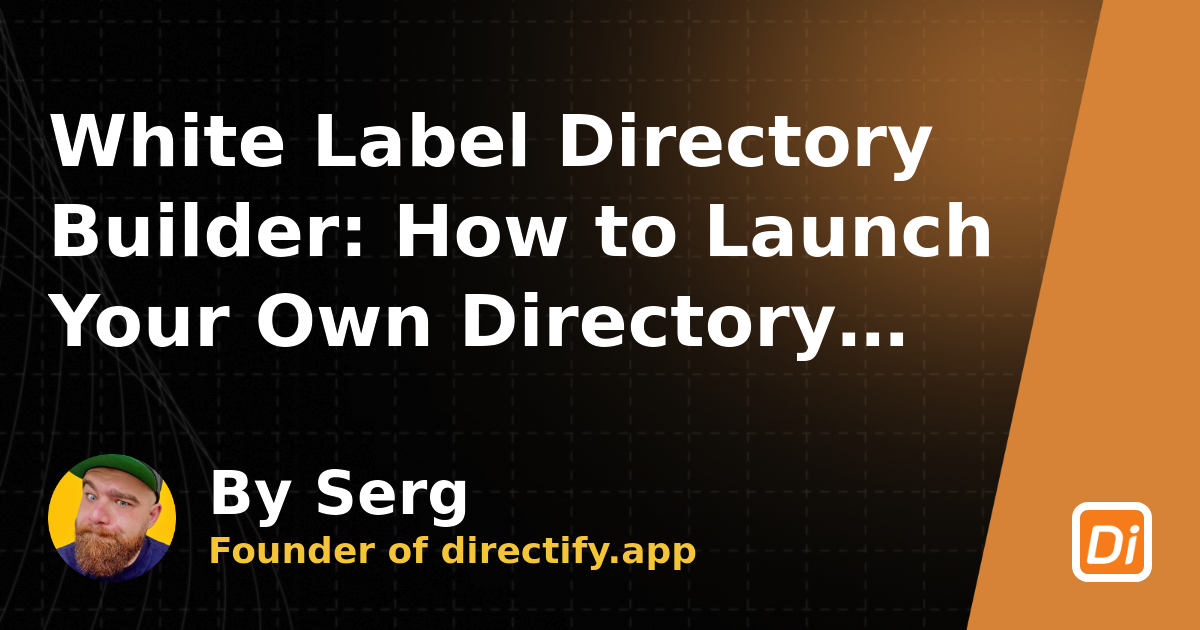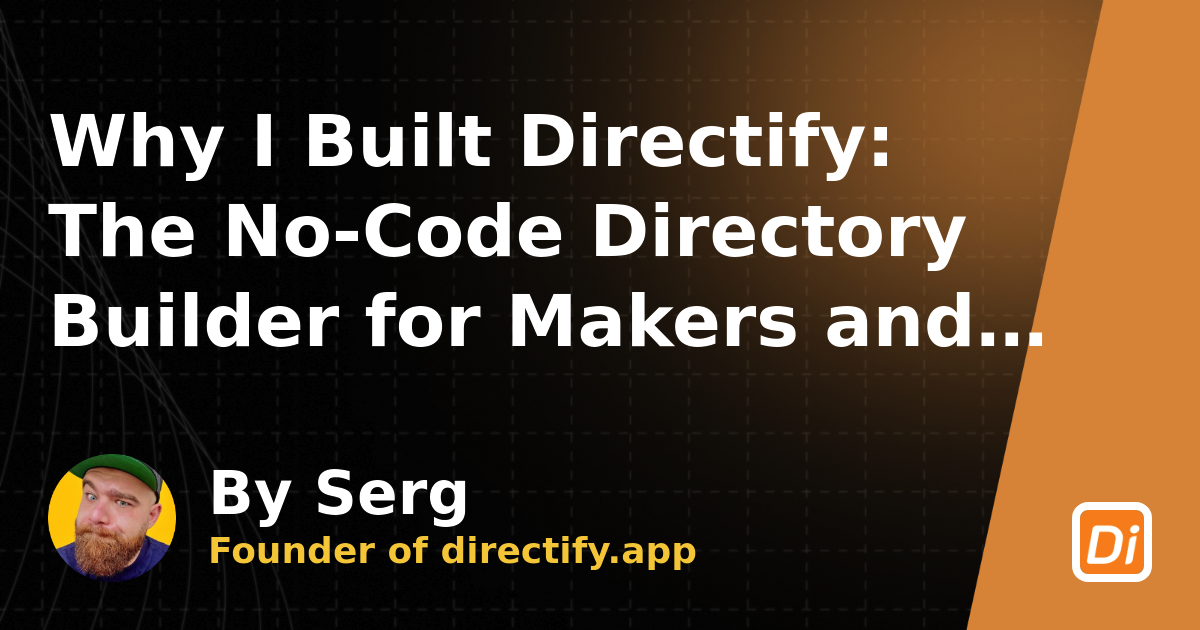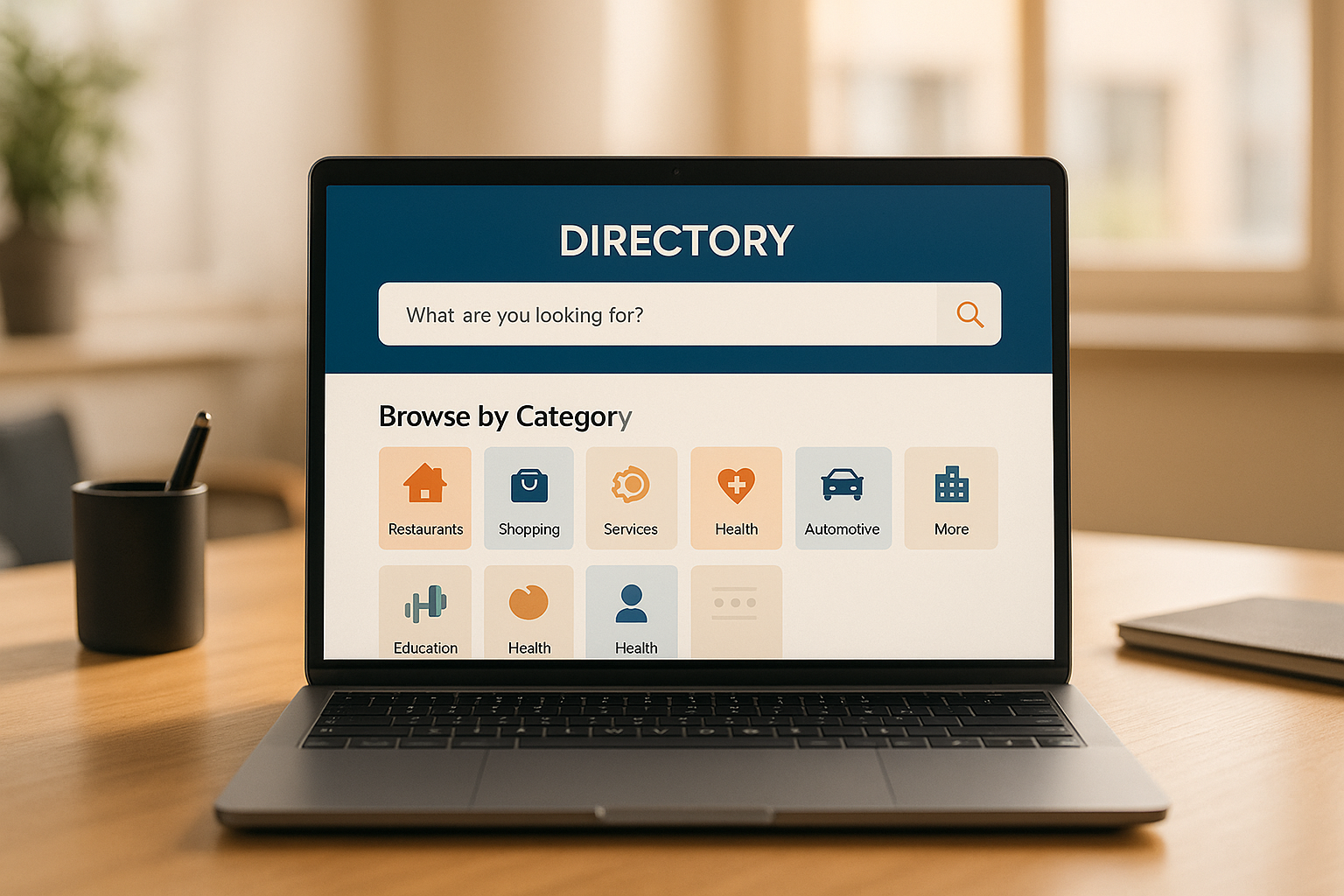

no-code directory builder platforms make creating local directories fast, easy, and affordable. You don’t need technical skills or a big budget to launch a professional directory. With tools like Directify, you can build, organize, and monetization features a directory in hours. Here’s why no-code is a game-changer:
For example, in 2023, directories like “Tennis Courts Near Me” and “Safari-List.com” launched successfully using no-code tools. Whether you’re mapping local businesses or niche services, no-code platforms let you focus on building content and growing your audience, not on coding or maintenance.
These tools allow you to create, manage, and monetize local directories without needing technical expertise.
No-code platforms provide ready-to-use templates that give your directory a professional look right away. You can tweak colors, fonts, and layouts to align with your brand, all without touching any code. Add your logo and connect a custom domain to build a polished and credible online presence. For example, Directify comes with a built-in theme system, letting you try out different styles until you find the one that fits your directory's goals, ensuring a consistent look across all pages.
Keeping directory content organized is simple with user-friendly tools. Add listings, create custom pages, and group them into categories tailored to your audience. The platform also supports importing data from CSV files or Google Sheets integration, saving time. In March 2023, a Directify client, Best for Grounding, successfully launched a directory of earthing products by importing their data - showing how easy content management can be. Once your listings are in place, built-in monetization and SEO tools can help boost revenue and visibility.
Monetization features let you start earning immediately. With Directify, for instance, you can charge businesses for premium listings or featured spots, with pricing starting at $19 per month [1]. SEO tools - such as optimized page structures, customizable meta descriptions, automatic sitemaps, and rich snippet support - help improve search rankings, driving more traffic to your directory. These features not only increase visibility but also enhance income from paid listings. Plus, team collaboration tools make it easy for multiple users to manage listings and other content as your directory expands.
Here’s how to bring your directory idea to life in just five steps.
Start by defining your directory's purpose and who it’s for. Decide on the key categories and crucial details to include, such as business hours, contact information, and pricing. For example, if you're building a local fitness directory, you might create categories like Gyms, Yoga Studios, and Personal Trainers. Include extras like class schedules and membership fees to make it more useful.
Sign up for Directify, then customize it to reflect your brand. Add your site name, logo, and color scheme, and connect your custom domain to make it yours.
You can add listings one by one, complete with photos and descriptions, or save time by importing them in bulk using CSV or Google Sheets. Organize everything into clear, easy-to-navigate categories. For instance, a restaurant directory could include sections like Fine Dining or Casual Eateries.
To monetize your directory, integrate a payment processor like stripe.com/" target="_blank">Stripe or Lemon Squeezy through Directify. Offer different pricing tiers to cater to various needs:
| Listing Type | Features | Monthly Price |
|---|---|---|
| Basic | Business name, address, phone | Free |
| Premium | Photos, extended description, website link | $19 |
| Featured | All Premium features + top placement | $49 |
Make sure everything works smoothly - test search functions, payments, forms, and mobile responsiveness. Boost visibility with SEO, and consider a soft launch with early-bird discounts to attract users. Use analytics to gather feedback and fine-tune your directory.
Once your directory is live, you’re ready to see the results of your hard work.
No-code platforms offer practical benefits that make them an excellent choice for building and managing directory websites. Here's why they stand out:
Skip the high costs of hiring developers or the long hours spent learning to code - no-code tools let you launch your directory in just a few hours. These platforms provide an affordable alternative to traditional development, which often comes with ongoing maintenance and hosting expenses.
With built-in features like hosting, SEO tools, payment processing, and customizable themes, no-code platforms consolidate everything you need. This bundled approach frees up your time and budget to focus on growing your directory rather than managing its technical backend.
No-code platforms make it easy to update and grow your directory over time. Whether you need to add categories, tweak pricing tiers, or update listings, changes can be made instantly without needing technical help.
As your directory grows, these platforms are designed to scale effortlessly. You can:
No-code platforms are built for users of all skill levels. Their drag-and-drop interfaces make directory creation and management straightforward, even if you have zero coding experience.
"Our directory website builder lets you build stunning, professional directory websites in just a few clicks - no coding, hosting, or complex setup needed" [1]
These platforms handle the technical heavy lifting, so you can focus on curating listings and building your community. Here's a glimpse at what they manage automatically:
| Feature | Managed Automatically |
|---|---|
| SEO | Sitemaps, meta tags, rich snippets |
| Security | SSL certificates, data encryption |
| Mobile Design | Responsive layouts, touch optimization |
| Data Management | Backups, updates, server maintenance |
This hands-off approach ensures your directory meets professional standards without requiring technical expertise. You can design, customize, and launch a fully functional directory with ease - all while keeping complete control over its look and features.
Building on core directory functions, these additional features can enhance user engagement and improve site performance.
A strong feedback system can help build trust and credibility. Reviews and ratings not only guide potential customers but also provide business owners with useful insights about their services.
Here’s what makes a feedback system effective:
Incorporating these elements creates a trustworthy platform for users and helps businesses improve their offerings.
Advanced search and analytics tools make it easier for users to find what they need and give directory owners valuable insights into user behavior.
| Feature | Purpose | Benefit |
|---|---|---|
| Rich Snippets | Enhances search results | Improves visibility in search engines |
| Custom Fields | Offers detailed filtering | Provides more accurate search results |
| Automated Sitemaps | Aids search engine indexing | Increases organic visibility |
| Data Export | Enables performance analysis | Tracks growth and engagement |
These tools allow you to:
Make sure to include intuitive search filters like location-based searches, category options, and price range selectors to help users quickly find relevant listings. Regularly analyze your data to identify trends, such as the most viewed listings, common search terms, and peak usage times. This information can guide updates and improvements to keep your directory competitive and user-friendly.
Together, these advanced tools work alongside earlier SEO and monetization strategies to create a platform that’s easy to navigate and optimized for success.
Building a local directory website is easier than ever, thanks to no-code platforms. These tools eliminate the need for technical skills, allowing entrepreneurs and organizations to launch professional directories quickly and efficiently.
More than 1,000 SEO-friendly directories have already been created using these platforms [1]. This shows how businesses and communities are turning to simpler, more effective ways to manage their online presence.
With user-friendly templates and smart tools, creating and managing a directory no longer requires technical expertise. These platforms enable small businesses and entrepreneurs to focus on their directory’s purpose while using built-in features for SEO and monetization to grow their audience.
Start creating your professional directory website today with Directify's no-code platform.
Get Started Free







